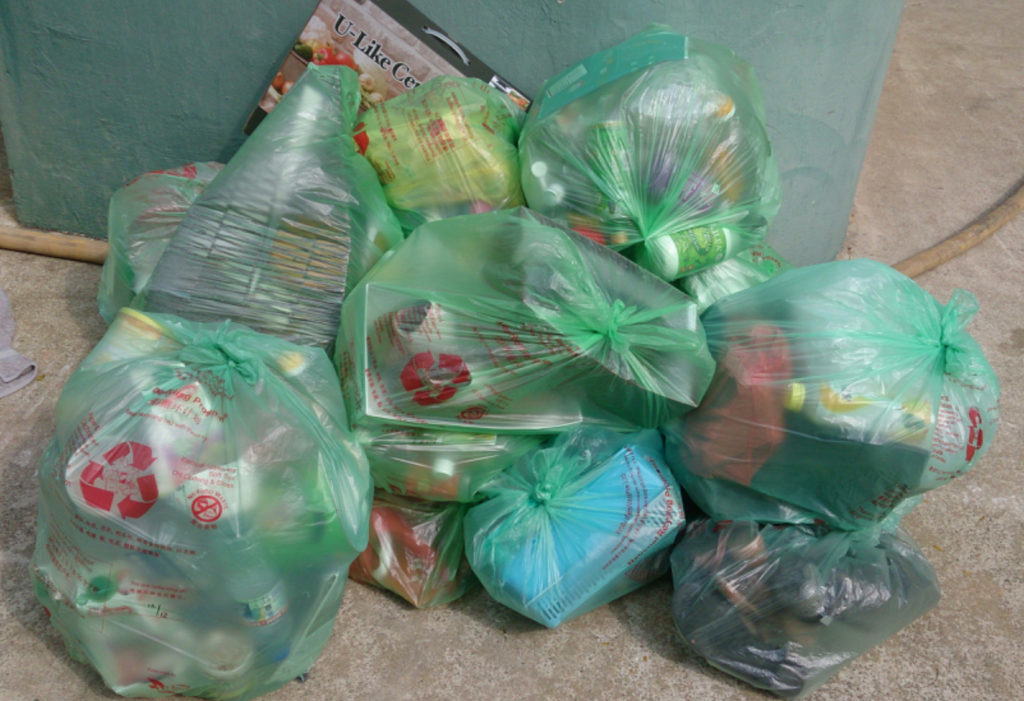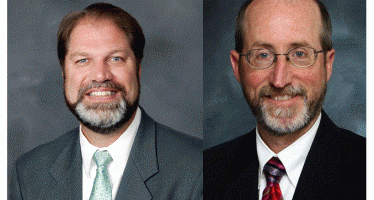California enters fourth year of poor recycling record

California has long considered itself to be a global beacon on environmentalism. But the state is now going on four straight years with a poor record on one of the core environmental practices: recycling.
The problem began in January 2016, when the California Department of Resources Recycling (CalRecycle) lowered the reimbursement rates that it paid recycling centers that took in single-use glass, plastic and metal bottles from consumers. Recycling center operators immediately complained and warned they already had razor-thin profit margins before the rates were cut. There were also signs that the government of China – long the world’s biggest buyer of plastic recyclable goods – was beginning to see accepting the waste of other nations as problematic, adding to recycling centers’ bottom-line headaches.
But the administration of Gov. Jerry Brown appeared indifferent to the warnings and opposed efforts in the Legislature that sought to keep recycling centers in business. The recycling industry began a slow-motion collapse that led to 560 recycling centers closing by May 2017.
“The reduced recycling means that every day 2 million additional containers are littered or landfilled, including more than 1 million plastic bottles every day,” Mark Murray, executive director of Californians Against Waste, wrote that month. “For consumers who try to supplement family income by redeeming containers, the loss of buy-back recycling locations has reduced total redemption payback by more than $3 million per month.”
Consumers losing $25 million a month on deposits
In February of this year, Associated Press reported that consumers’ loss of money because of a lack of access to redemption centers paying back 5-cent deposits on cans and bottles had soared to $308 million in 2018 – about $25 million a month.
The AP report was based on a Consumer Watchdog analysis that called on California to begin charging a minimum of a 10-cent deposit on cans and bottles, as is done in Oregon and Michigan, which report recycling rates of 90 percent – far better than California’s 75 percent rate.
Those states have accepted that with China’s 2018 decision that it would no longer accept the world’s waste, the basic economics of recycling had to change to prevent recyclables from ending up in landfills. But the administration of Gov. Gavin Newsom has so far not pushed for higher deposits.
In February, the California State Association of Counties wrote Newsom a letter requesting that he form a state commission to come up with new recycling policies.
“Significant market disruptions for recyclable materials have a direct impact on California’s local governments and our ability to meet state-mandated recycling goals,” the association told the governor. “The commission should examine potential solutions including, the development of international and domestic markets, updated compliance standards in this new economic environment, ways to increase source reduction, and any other means that will alleviate this growing public health and environmental crisis.”
Public pressure on Newsom and state lawmakers to respond to recycling headaches could build soon because of pocketbook issues. The Southern California News Group reported last week that many local governments were steadily increasing monthly trash/recycling collection rates because of the changing economics of recycling.
Legislature may add bans on single-use plastics
The report also noted that the state Legislature was responding to recycling woes by considering bills that would discourage or ban single-use plastics, following up on measures banning plastic bags and limiting the use of plastic straws in California.
One of the measures – Assembly Bill 1080, by Assemblyman Henry Stern, D-Canoga Park – would require “single-use plastic packaging and products sold or distributed in California to be reduced, recycled or composted by 75 percent by 2030, and require all single-use packaging and products to be recyclable or compostable on and after 2030,” according to a legislative analysis.
It passed the Assembly Natural Resources Committee and the Assembly Appropriations Committee on party-line votes on March 25 and May 16, respectively.
Chris Reed
Chris Reed is a regular contributor to Cal Watchdog. Reed is an editorial writer for U-T San Diego. Before joining the U-T in July 2005, he was the opinion-page columns editor and wrote the featured weekly Unspin column for The Orange County Register. Reed was on the national board of the Association of Opinion Page Editors from 2003-2005. From 2000 to 2005, Reed made more than 100 appearances as a featured news analyst on Los Angeles-area National Public Radio affiliate KPCC-FM. From 1990 to 1998, Reed was an editor, metro columnist and film critic at the Inland Valley Daily Bulletin in Ontario. Reed has a political science degree from the University of Hawaii (Hilo campus), where he edited the student newspaper, the Vulcan News, his senior year. He is on Twitter: @chrisreed99.
Related Articles
California Democrats tar opponents with Trump
California Democrats have centered around a handful of Republican challengers they hope to tar with Donald Trump’s brush. Assemblymen Dante
Special Election: Moorlach wins, Glazer advances to run-off for CA Senate
Two reformers, one a Republican the other a Democrat, won yesterday’s contested races for the California Senate. But the Democrat
Nurse union exploits Ebola crisis in negotiations
Seizing on the growing concern about the deadly West African virus, the California Nurses Association, one of the state’s most




